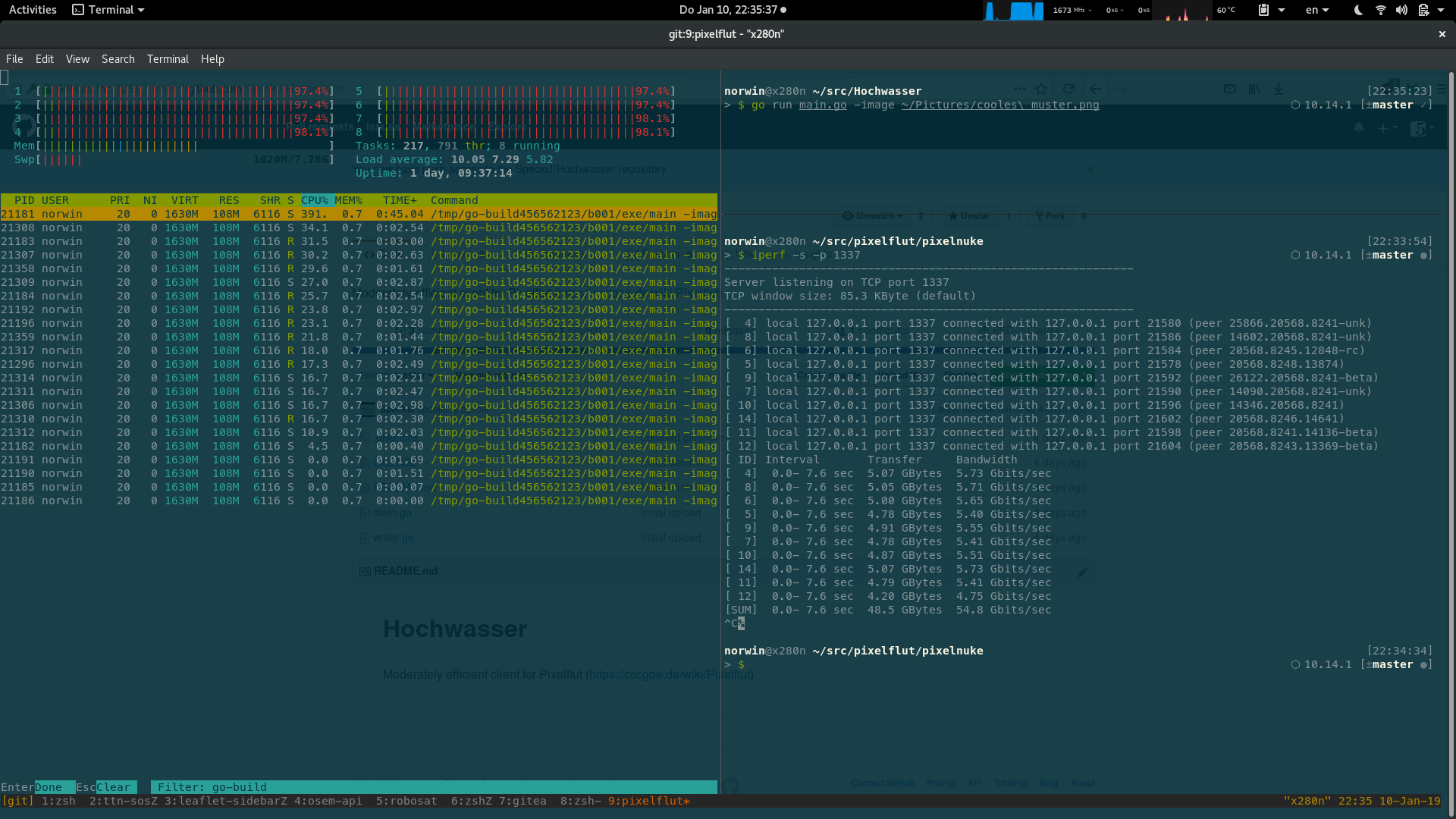🌊🌊🌊 Hochwasser 🌊🤽🌊


Highly efficient distributed [Pixelflut] client.
- Sends static images, text, generated patterns (animations upcoming)
- REPL enables fast iterations
- CnC server + client architecture (it's webscale!) (can also run in a single process)
- Faster than [sturmflut] (in some benchmarks at least)
- No dependencies (pixelflut apparently was considered a primary use case in the design of golang's stdlib 👍)
[pixelflut]: https://cccgoe.de/wiki/Pixelflut
[sturmflut]: https://github.com/TobleMiner/sturmflut
### testimonials
> Pixelflut endlich *durchgespielt*.
>
> - Steffen Cybert
> N-no more micro-ddosing: bring on ssome Hochwasser and exppperience colors never seen befffore!1!
>
> - Morty
> Hochwasser brings back the D in *social DDoSing*! Man, I forgot which one..
>
> - Doc Brown
## build / install
1. have a `go` installation >= 1.12
2. `go get github.com/SpeckiJ/Hochwasser`
3. `go install github.com/SpeckiJ/Hochwasser`
> The help texts may be lacking, it's recommended to read `rpc/repl.go`.
## hacking
Look at the `github.com/SpeckiJ/Hochwasser/pixelflut` subpackage, it contains the performance sensitive core.
The code is getting somewhat ~~bloated~~enterprise-ready, so if you want to quickly render a fun thing,
it may be easier to just build a separate executable on top of `pixelflut.Flut()`, than to extend Hochwasser.
## benchmark
The following benchmark was run on a max-spec X280 against version [d4c574b].
I could not figure out what the performance bottleneck is, but it doesn't seem
to be CPU limited, as turbo-boost doesn't kick in.
To reproduce, run the following commands in separate shells:
```sh
iperf -s -p 1234
go run main.go -image benchmark/test.png -connections 10
```

55 Gbps on average! 🌊🌊🌊
[sturmflut] (`./sturmflut 127.0.0.1:1337 benchmark/test.png -t 10`, version `8ec6ee9`) managed to get 48 Gpbs throughput on this system.
> Hint: Benchmarking throughput against the [pixelnuke][pixelflut_gh] server is
pointless, as performance is then CPU-limited to ~1 Gbps by the server.
Using [iperf] removes the server limitation.
This also means that these metrics of several Gbps are far higher than
realworld scenarios.
[d4c574b]: https://github.com/SpeckiJ/Hochwasser/commit/d4c574be103a7bad69349f29402694f51058184c
[pixelflut_gh]: https://github.com/defnull/pixelflut
[iperf]: https://iperf.fr/
## future ideas
see [IDEAS](https://github.com/SpeckiJ/Hochwasser/blob/master/IDEAS.md).




